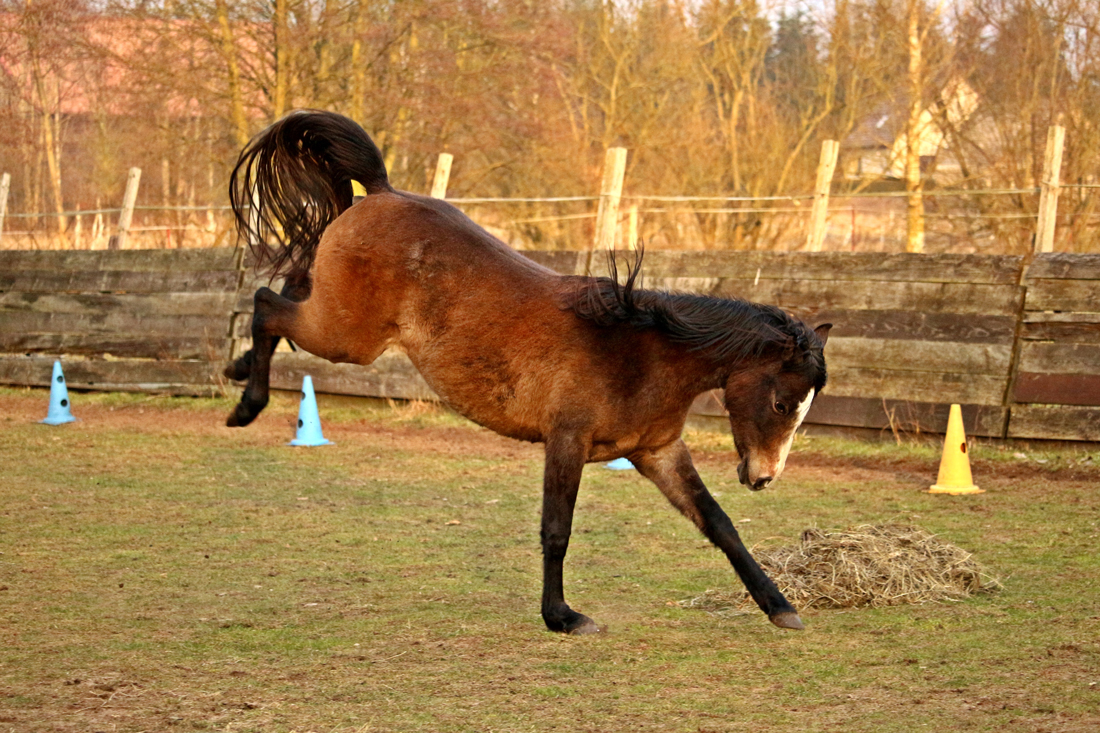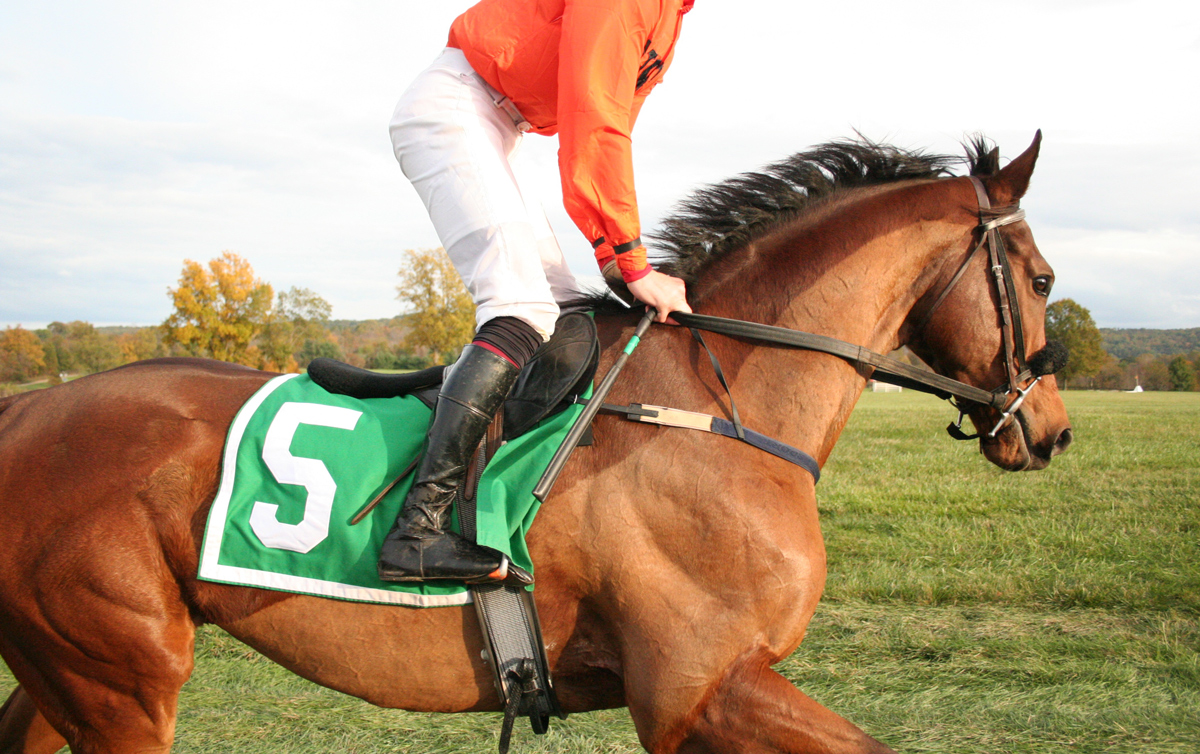Providing a forever home for an ex-racehorse can be a rewarding way to find an athletic, intelligent and well looked-after horse at a good price. With the right owner, a well-handled ex-racehorse can make an excellent riding companion – a win-win situation for all concerned.
But after you’ve checked out what horse insurance is available, how do you go about finding the right horse? And what do you need to do to make sure you have a long and successful life together? Read our top tips to find out.
Tip 1: Be realistic
The possibility of owning such a beautiful and sensitive creature is clearly very enticing but you need to be realistic about your own capabilities.
Ex-racehorses require plenty of time, money and patience to get them ready for their new career. Are you prepared for that? Such horses are used to very experienced handlers so may not be suitable for novices – even if they have been retrained.
Tip 2: Be understanding
Thoroughbreds can be more sensitive than your average horse and will have been trained for a very different style of riding technique.
If you’ve ever seen a horse race, you’ll know just how different it is from your usual happy hack through the countryside. Long stirrups and a heavy saddle will take some getting used to so you’ll need to be patient while they adjust to the changes.
And it’s not just riding technique they’ll need to adapt to. Amongst other things they might have been used to spending a lot of time in stables and won’t be used to being exercised alone.
Try to put yourself in their place and think how you would feel about so many changes happening all at once. As a horse lover, you’ll already be empathetic to this but it’s still worth bearing in mind.

Tip 3: Choose wisely
With around 4,000 racehorses leaving the sport every year, there will be plenty to choose from if you decide to take the plunge.
There are three main routes through which ex-racehorses are sold on. Either directly from the owner or trainer, via a horse sale, or from a retrainer who has already put in a lot of the hard work.
For those who are not professional riders themselves or who don’t already have a lot of experience retraining racehorses, the retrainer route is probably the best option.
By purchasing a horse from a retrainer, you’ll know it’s already started its post-racing career in capable hands. While you’re likely to pay more, it will be worth it.
The perfect place to start is Retraining of Racehorses (RoR), a charity set up to provide a safety net for ex-racehorses and promote their use as general riding horses.
Through 10 accredited centres, RoR provides funding for the rehabilitation, retraining and rehoming of ex-racehorses. It’s an invaluable source of advice for ex-racehorse owners.
Tip 4: Ask the right questions
Whichever route you choose, bear in mind the following questions:
- Has the horse had any retraining since retiring from the track?
- Do you believe the seller’s reason for sale?
- Are there any injury problems which led to retirement?
- Is the horse right for you and can it do the job you want it for?
- Are you capable of continuing the horse’s retraining?
- Is there anyone who can guide and support you if you get into difficulties?
If you’re thinking of investing in an ex-racehorse, speak to your horse insurance provider earlier rather than later.
Tip 5: Do your homework
Researching the ex-racehorse racing record is vital and can easily be done on the Racing Post website for UK horses.
Inquire further if there are any unexplained gaps in its racing career. This could indicate a potential problem. And don’t be put off by a long racing history, it just shows that it’s had a long, full, healthy life.
Remember the more research time you invest now, the better prepared you’ll be after purchase.

Tip 6: Ride before you buy
Just because you’re looking at an ex-racehorse doesn’t mean you should abandon normal buying procedure.
Asking to ride it, or at least watching it being tacked up and ridden will give you a good idea as to what you’re letting yourself in for.
Depending on its level of retraining don’t expect too much but do watch out to see if it seems willing to do what it’s asked and how well it moves.
Tip 7: Check for temperament
Personality and temperament are key to a successful future life with an ex-racehorse. Ask the trainer or other people who ride or look after the horse what it’s like. You really need to be suited for it to work.
Tip 8: Be prepared to pay
Trying to get an ex-racehorse on the cheap is a false economy. If there are problems then you’ll probably end up paying much more on vet bills later on. If you want an ex-racehorse with any kind of future career, then you need to be prepared to pay.
Horse insurance protection through Equesure
Ex-racehorses will have had a busy life and it’s your responsibility to help them make a successful transition into their next career.
To fulfil your duties as an owner and friend you’ll need to find adequate cover to suit their changing needs. With over 60 years’ combined experience in the insurance market, our team of specialists can offer a bespoke insurance policy to help you do this, whatever your budget.
And it’s not just ex-racehorses we can help with. From leisure horses to veteran horses, we can help protect your equine companion against any potential risks. We can also provide horse rider insurance for you and cover for your trailer or horsebox.
Policies arranged through Equesure include cover for vets’ fees up to £4,500 per incident, but with unlimited number of claims within the policy year. We can also cover saddlery and tack and personal accident cover up to £20,000.
Call our horse insurance team for a quick quote today.
Policy benefits, features and discounts offered may very between insurance schemes or cover selected and are subject to underwriting criteria. Information contained within this article is accurate at the time of publishing but may be subject to change.





